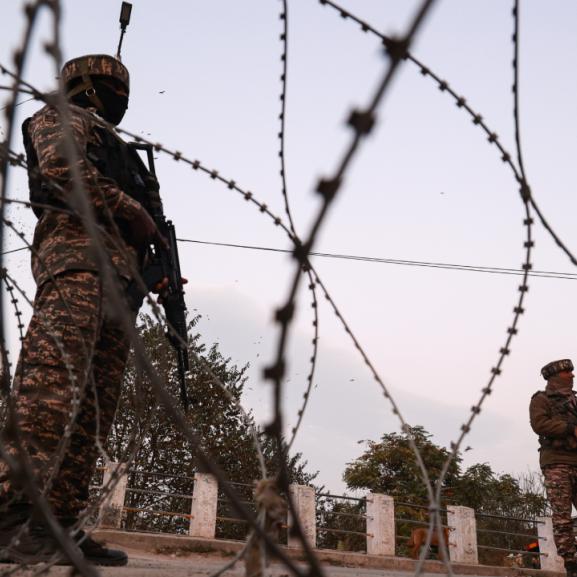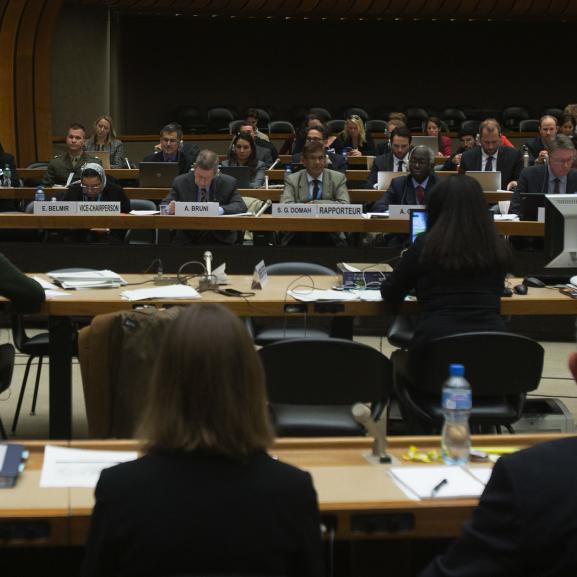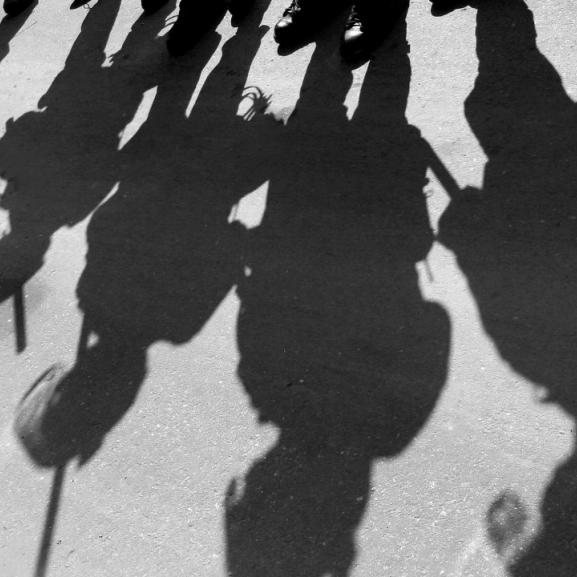The Hooded Men: British torture survivors’ fight for justice
Discover the story of the Hooded Men – British torture survivors fighting for justice. Learn about their history, the calls for independent investigations, and the fight against impunity.
In 1971, 14 British men, commonly known as the Hooded Men, were subjected to state-sanctioned torture in Northern Ireland.
For decades, these men have been fighting for justice and for an acknowledgment that the treatment that they were subjected to amounts to torture.
Various courts in Northern Ireland have acknowledged this treatment as torture – the UK government has not.
We know first-hand the direct impact that justice has on the healing process. Justice is integral to survivors’ rehabilitation.
Who are the Hooded Men?
In the summer of 1971, the UK government arrested hundreds of men as part of “Operation Demetrius” during the Troubles in Northern Ireland, imprisoning them without trial.
14 men – who became commonly known as the 'Hooded Men' - were chosen for 'special treatment' and were taken to a secret interrogation centre.
The men were brutally beaten and were thrown hooded from helicopters, which they were told were flying hundreds of feet in the sky but were actually only a few feet above ground. They were also subjected to what would become known as the ‘five techniques’:
- Hooding
- Stress positions
- White noise
- Sleep deprivation
- Deprivation of food and water
These techniques, which qualify as torture, were authorised at the highest levels.
None of the 14 men were ever convicted of any criminal offence.
Why are we talking about this now?
On 14 June 2021, the Hooded Men’s case returns to British courts in the latest episode in a long-running fight for justice and accountability.
The UK Supreme Court will consider whether the Police Service of Northern Ireland has breached its obligations under article 3 of the European Convention on Human Rights (freedom from torture and inhuman or degrading treatment) by deciding not to investigate the allegations of torture in the Hooded Men case and whether it is sufficiently independent to do so.
A ruling is expected later this year.
Refusals to investigate the Hooded Men case are an attempt to limit accountability for torture and ill-treatment committed by British agents against British citizens in Britain.
Exporting torture
In March 1972, the British government vowed never to use the five techniques again. Despite these promises, British troops were once again – illegally - using the five techniques in the Iraq War during interrogation.
Freedom from Torture, Survivors Speak OUT and others successfully campaigned (with the help of our supporters!) to stop the British government from legislating de facto impunity for British soldiers who had committed war crimes and torture – such as the five techniques – in Iraq and Afghanistan.
Unfortunately, the Overseas Operations Act that was passed still includes a time limit on when survivors can bring civil claims against the government. While we stopped some of the worst proposals, the legislation represents an agenda to limit accountability for torture and ill-treatment committed by British troops abroad.
Refusals to investigate the Hooded Men case are an attempt to limit accountability for torture and ill-treatment committed by British agents against British citizens in Britain.
A long fight for justice - a timeline
· In 1976, the European Commission of Human Rights ruled that the five techniques amounted to torture.
· In 1978 the European Court of Human Rights ruled that the techniques were "inhuman and degrading" and breached Article 3 of the European Convention on Human Rights, but did not amount to torture.
· In 2014, after new information was uncovered that showed the decision to use the five techniques in Northern Ireland in 1971–1972 had been taken by government ministers, the Irish Government asked the European Court of Human Rights to review its judgement.
· In 2014, the Police Service of Northern Ireland decided not to investigate whether anyone should be held criminally responsible in the Hooded Men case.
· In 2017 the Hooded Men brought a Judicial Review in the High Court in Belfast. The High Court ruled that the failure by the Police Service of Northern Ireland (PSNI) to investigate the allegations of torture was unlawful and should be quashed. The PSNI sought to appeal this decision to the Court of Appeal.
· In 2018, the European Court of Human Rights declined to review its judgement.
· In September 2019, the Court of Appeal ruled that the decision of the High Court should stand and that the PSNI should investigate the case. The Court accepted that the treatment to which the Hooded Men were subject would be characterised as torture if it occurred today.
· In March 2021, the PSNI suspended work linked to an independent review of the case pending the June Supreme Court hearing on the independence of the PSNI.
· 14-16 June 2021, the UK Supreme Court will consider the independence of the PSNI to investigate these kind of legacy cases in a matter brought by the police.






